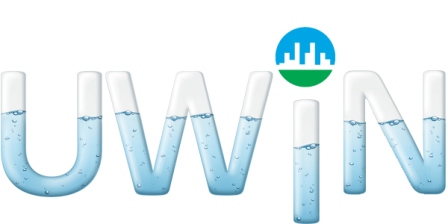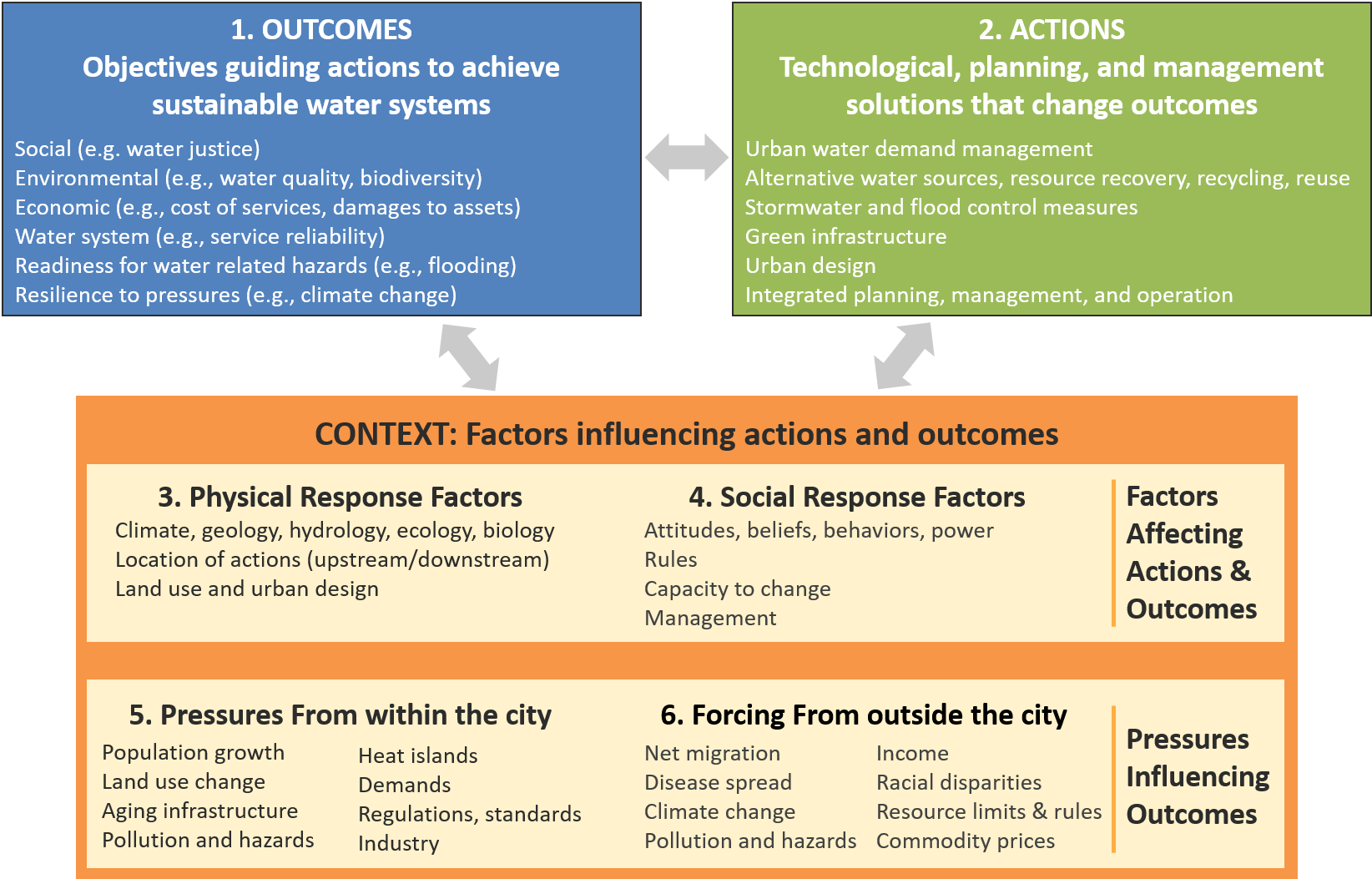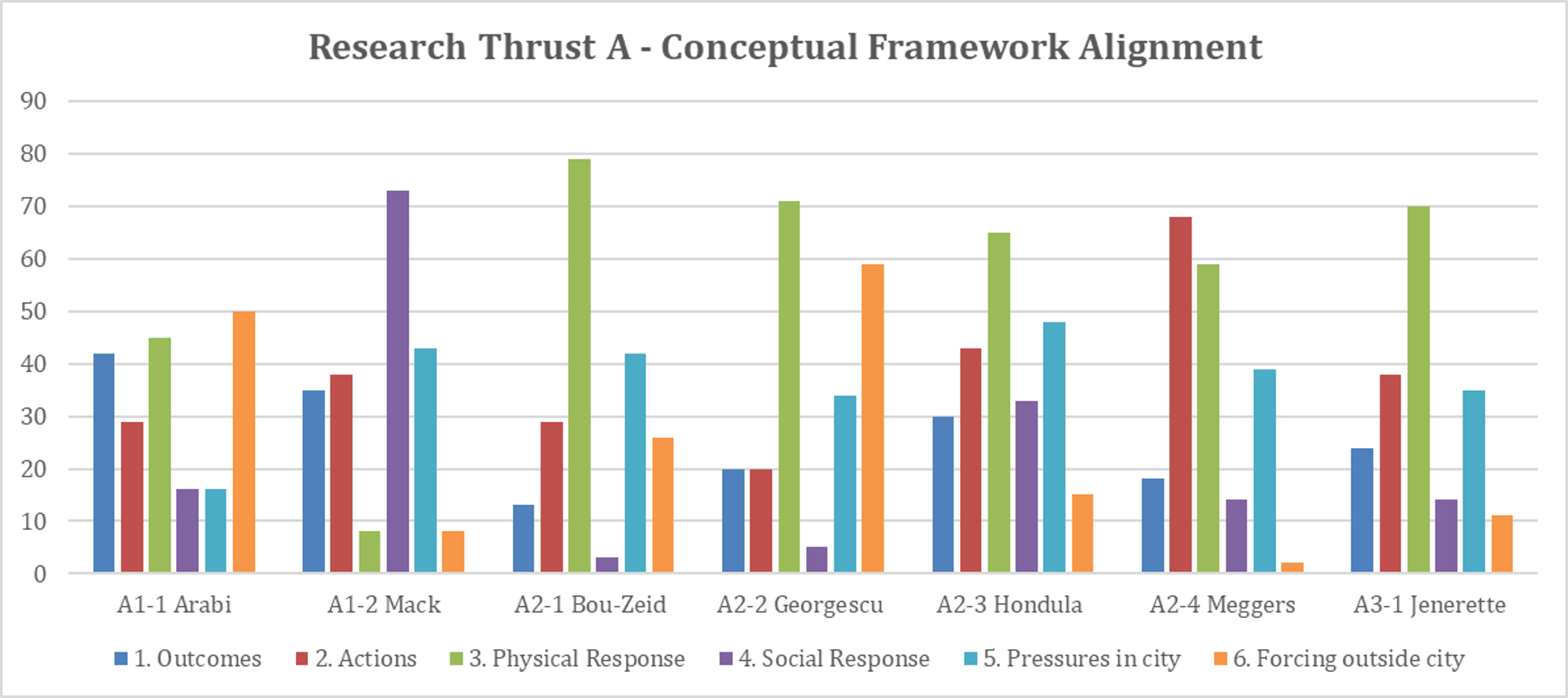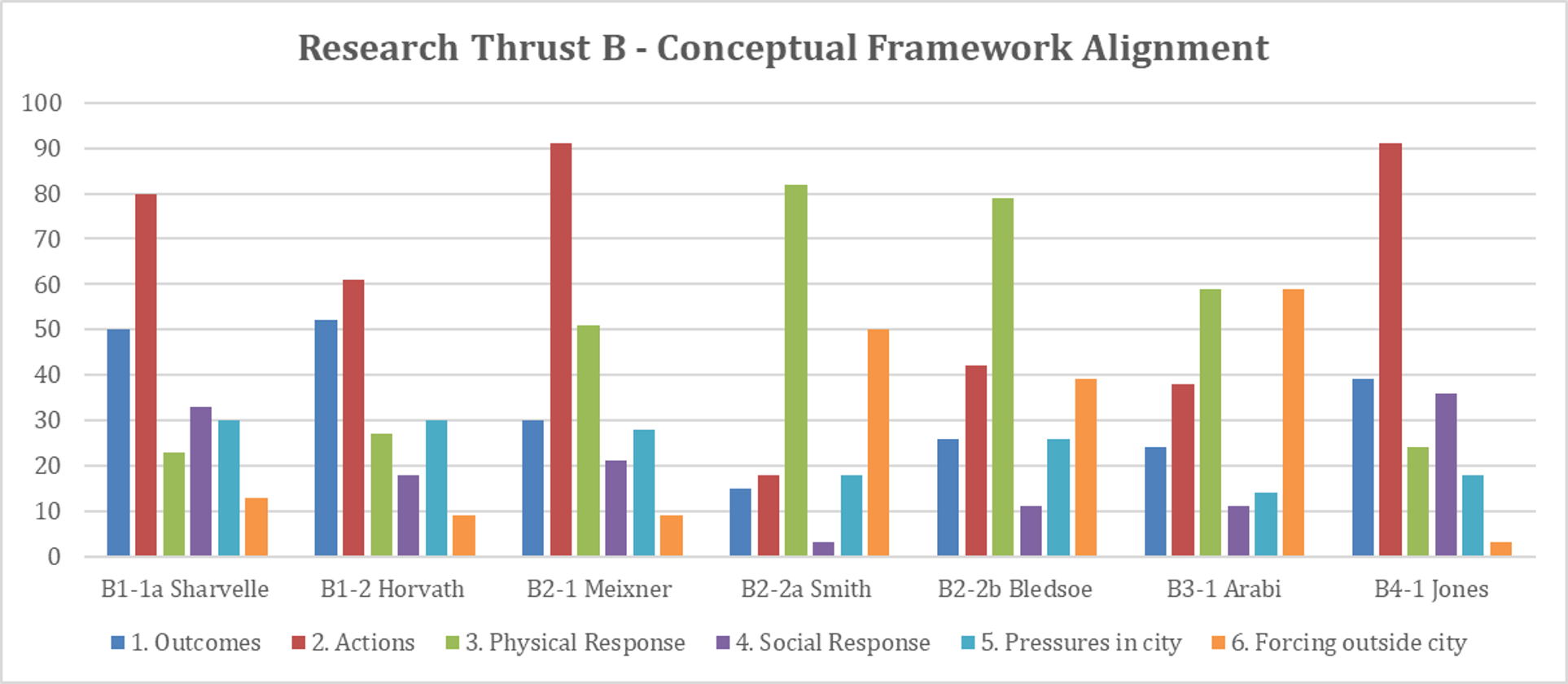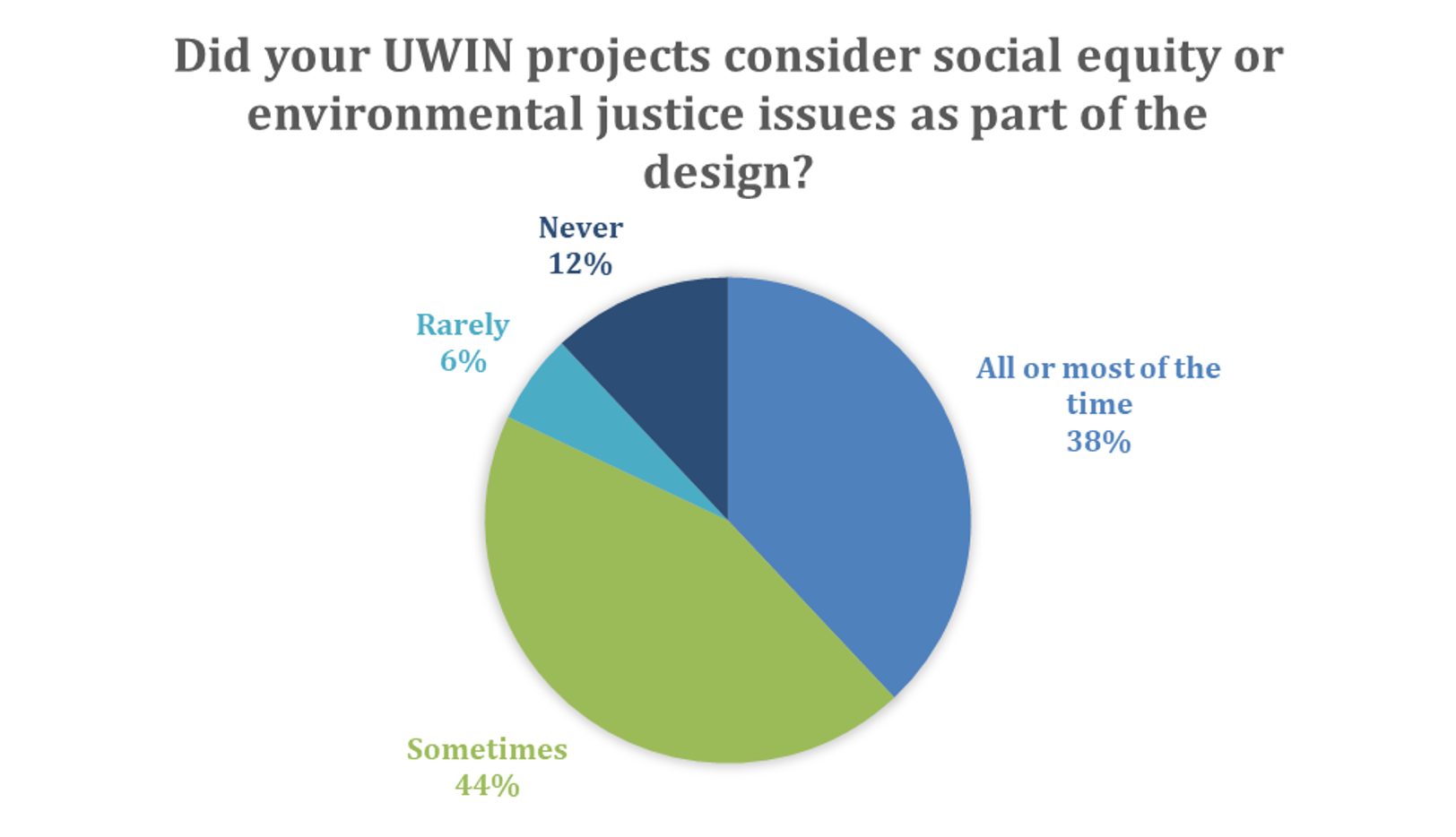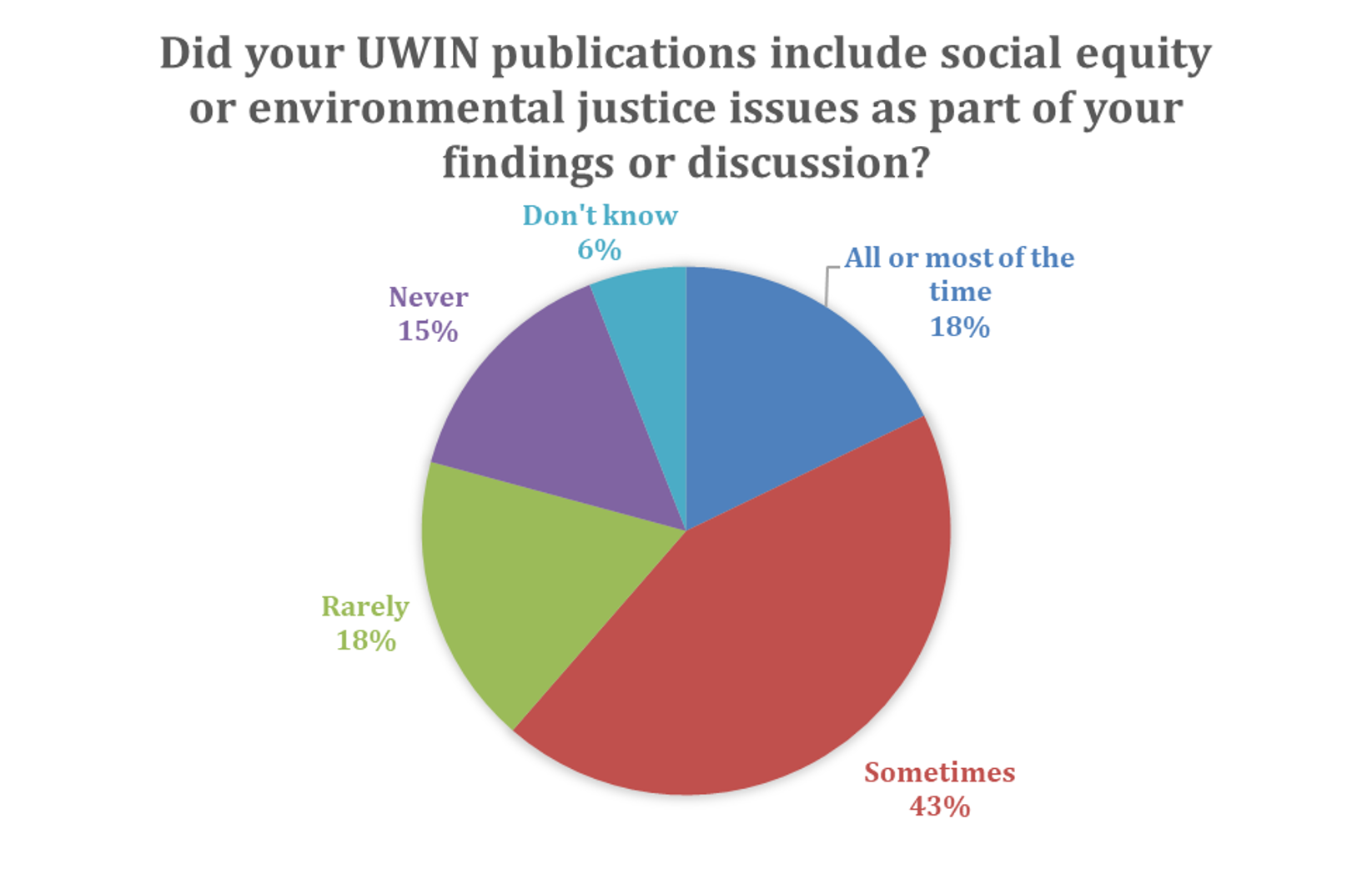Urban Water Innovation Network
Annual Meeting
July 28 – 29, 2020
Despite the unfortunate lack of face-to-face interactions, the 2020 meeting still provided an opportunity to engage in fruitful interactions with the UWIN SRN team. This year was focused on the Network itself – identifying how the research links back into the UWIN Conceptual Framework and contributions to the holistic vision of the UWIN Sustainability Research Network (SRN). Discussions were focused on the achievements of the Network and identifying the broader contributions of the SRN to both the scientific and “real-world” (practitioner) communities.
The 2020 Annual Meeting engaged nearly 100-online participants including 48 UWIN Investigators, 32 students (10 undergraduates and 22 graduate students/post-docs), 8 collaborators and 7 Advisory Board Members. Attendance spanned over 40 institutions spread across the country.
The detailed meeting summary reflects the vibrance of the Network and highlight the adaptability of our team to meaningfully engage in an on-line format, providing both important documentation of accomplishments as well as potential pathways forward to sustain the Network beyond the NSF funding cycle. The unique interactive features utilized during the meeting allowed the team to collect meaningful data and feedback on the trajectory of our SRN.
UWIN 2020 Annual Meeting Summary
Purpose
Due to COVID-19 the Annual All-Hands meeting has been moved online and will be conducted via Zoom. Despite the unfortunate lack of face-to-face interactions, the 2020 meeting will still provide an opportunity to engage in fruitful interactions with the team. This year will be focused on the Network itself – identifying how the research links back into the UWIN Conceptual Framework and contributions to the holistic vision of the UWIN SRN. Discussions will be focused on the achievements of the Network and identifying the broader contributions of the SRN to both the scientific and “real-world” (practitioner) communities. Interactive activities and discussions are planned to enrich the online
Tuesday July 28, 2020
|
8:45 – 9:00 am |
Welcome & Instructions |
|
9:00 – 10:30 am |
Thrust A Project Reports Each project will have 10-mins to provide a synthesis of their research findings and discoveries:
|
|
10:30 – 10:45 am |
Participant Framework Activity – Thrust A Facilitated interactive activity to map each project onto the UWIN Conceptual Framework that has been refined over the last year. |
|
10:45 – 11:00 am |
BREAK |
|
11:00 – 12:30 pm |
Thrust B Project Reports Each project will have 10-mins to provide a synthesis of their research findings and discoveries:
|
|
12:30 – 12:45 pm |
Participant Framework Activity – Thrust B Facilitated interactive activity to map each project onto the UWIN Conceptual Framework that has been refined over the last year. |
|
12:45 – 1:30 pm |
LUNCH BREAK |
|
1:30 – 2:30 pm |
Thrust C & D Project Reports Each project will have 10-mins to provide a synthesis of their research findings and discoveries:
|
|
2:30 – 2:45 pm |
Participant Framework Activity – Thrust C & D Facilitated interactive activity to map each project onto the UWIN Conceptual Framework that has been refined over the last year. |
|
2:45 – 3:00 pm |
BREAK |
|
3:00 – 3:30 pm |
URP Case Study Presentation |
|
3:30 – 4:30 pm |
Happy Hour (optional) Grab your favorite beverage and enjoy unscripted social time with your colleagues |
Wednesday July 29, 2020
|
8:00 – 9:00 am |
Integration & Synthesis Activities 10-15-minute presentations, followed by 15-min Q&A/discussion
|
|
9:00 – 9:15 am |
BREAK |
|
9:15 – 10:45 am |
URP Presentations 5-minute student lightning presentations with 2-mins Q&A
|
|
10:45 – 11:30 am |
LUNCH BREAK |
|
11:30 – 12:45 pm |
Network Growth & Expansion (Sukop)
|
|
12:45 – 1:00 pm |
BREAK |
|
1:00 -2:00 pm |
UWIN Perspectives on the Contribution of Research Networks to Science and Practice Facilitated Discussion (Pivo) Practice: What did your UWIN project do or might it do in the future, to further assist cities in making progress towards more sustainable urban water systems? 1. What has your research done to assist cities (how is this useful/relevant for utilities and communities)? 2. AND/OR How might your work eventually impact practice; if practitioners knew what you’ve learned about your understanding of urban water systems, how might it eventually change how we conduct future business and best practices? Science: What has the UWIN SRN accomplished that would not have been possible by a regular sized NSF grant and/or individual research endeavors? 1. How have your activities within UWIN advanced interdisciplinary urban water science? 2. Basic/fundamental interdisciplinary science? 3. Methods and tools that enable enhanced understanding and characterization of sustainable urban water systems? |
|
2:00 – 2:15 pm |
UWIN SRN Accomplishments (Arabi) |
|
2:15 – 2:30 pm |
BREAK |
|
2:30 – 3:30 pm |
Advisory Board Reflection Opportunity for NSF program managers and UWIN External Advisory Board to reflect on what they have heard over the previous sessions |
Interdisciplinary Student Training Workshop
July 27, 2020: 9:00am – 4:00pm (Mountain Time)
Purpose: The goal of the workshop is to provide a low barrier, interactive and engaging opportunity for students to learn how to market themselves as an interdisciplinary researcher and learn to communicate research activities to non-disciplinary audiences. Students will be asked to complete an assignment and review workshop materials prior to the online meeting (see GOOGLE FOLDER). You will be asked to create a slide summarizing your research for your peers to review as well as draft a statement about being an interdisciplinary researcher which you will refine during your training. Space and time are being for open discussions with your peers and to foster relationships that prolong your UWIN connections after the funding has ended.
AGENDA
|
9:00 – 9:30 am |
Welcome & Introductions Ice breaker: introduce your favorite COVID distraction |
|
9:30 – 10:00 am |
Introduction to interdisciplinary research Deana Pennington – Facilitator, University of Texas at El Paso |
|
10:00 – 11:00 am |
Share your Research Preassigned breakout groups of 3-4 students |
|
11:00 – 11:15 am |
BREAK Scavenger hunt – come back in your favorite hat |
|
11:15 – 12:00 pm |
Mock Solicitation Return to preassigned breakout groups of 3-4 students |
|
12:00 – 12:30 pm |
LUNCH BREAK Scavenger hunt – come back with your most used kitchen item |
|
12:30 – 1:30 pm |
Group Reports – Mock Solicitation Results Report results of the mock solicitation activity to full group |
|
1:30 – 2:00 pm |
Inter-/trans-disciplinary Research Statement Review Return to preassigned breakout groups of 3-4 students |
|
2:00 – 3:15 pm |
Ad-Hoc Breakout Groups Opportunity to connect with your peers in breakout sessions and discuss in a low-barrier open-format. Be sure to add suggestions to the Google Doc! |
|
3:15 – 4:00 pm |
Wrap-up and Open Discussion Concluding remarks and workshop evaluation: https://www.surveymonkey.com/r/559BGF9 |
|
4:00 – 5:00 pm |
Virtual After Party Grab your favorite drink and enjoy some casual conversation with your peers! |
